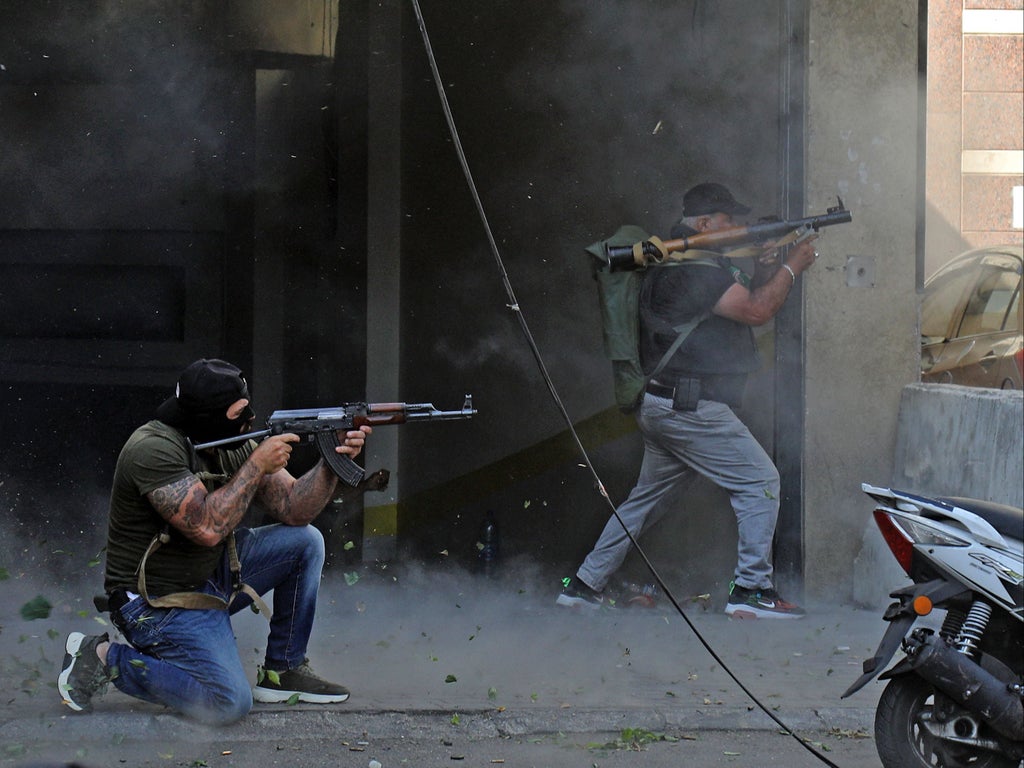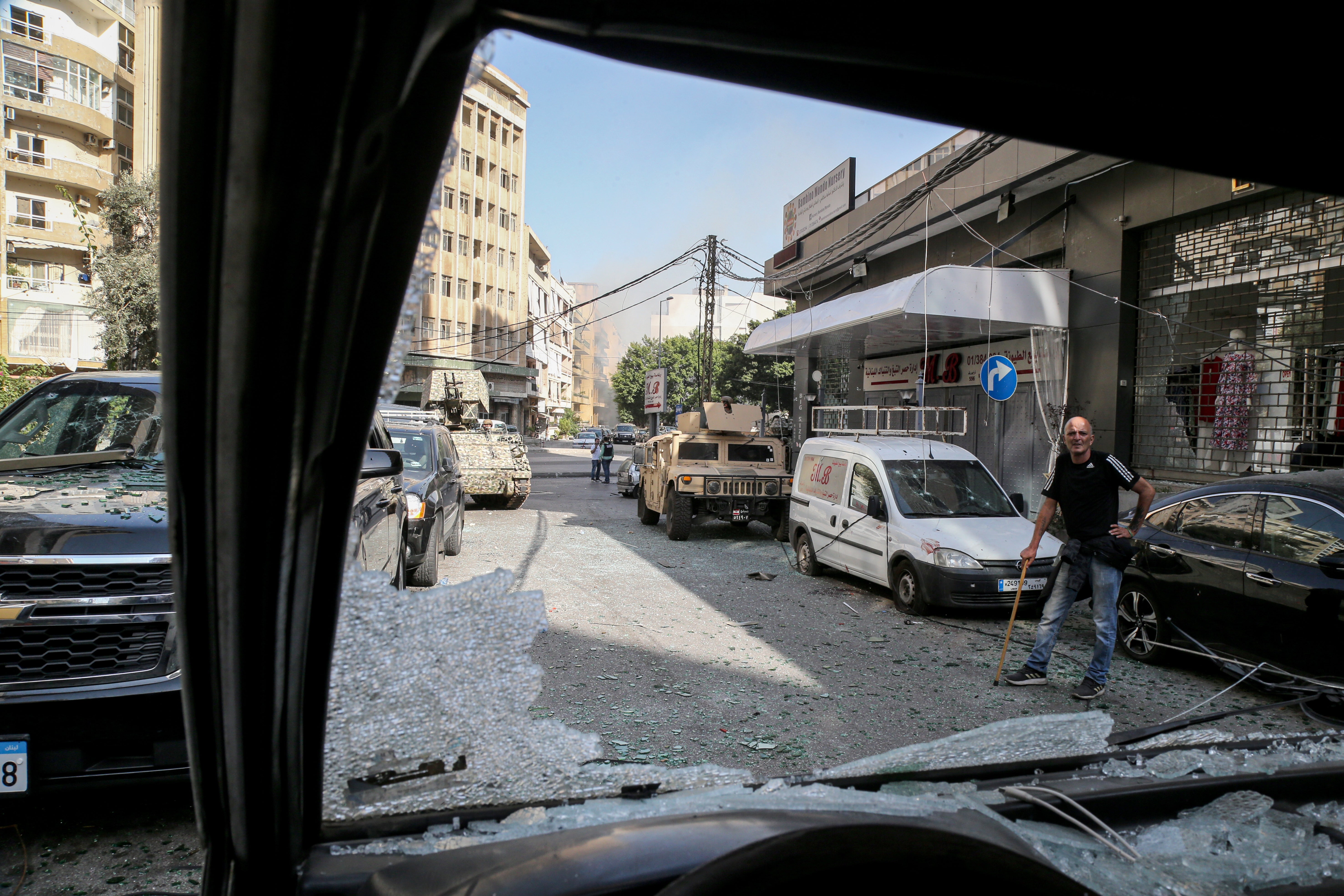
At least six protesters were killed and dozens injured as clashes erupted in Beirut on Thursday, according to the Lebanese Red Cross and reports published by local media.
The Lebanese army confirmed in the aftermath of the clashes it arrested nine people, including a Syrian citizen. The army also said on Twitter that it remained deployed in the area to ensure violence did not occur again.
Earlier on Thursday, eyewitnesses said they heard at least two explosions near the site where a protest was supposed to be held by Iran-backed Shia militia Hezbollah against a judge who is investigating last year’s devastating blast at Beirut’s port. Thursday’s shootings mark the deadliest civil violence in Beirut since 2008.
Tensions over the probe have boiled for months. Hezbollah and its allies are leading demands to remove Judge Tarek Bitar, who they accuse of bias.
Lebanon’s army said on Thursday protesters in Beirut were fired on while they were heading to the Palace of Justice to hold a demonstration against the judge.
“While protesters were going to the Palace of Justice, they were fired at in the Tayounah area,” an army statement said.

The army statement also warned it would shoot at any person carrying a gun, urging people to remain at their homes.
The Lebanese Red Cross said at least 30 people were wounded. One of the dead, a mother of five, was shot in the head.
Heavy gunfire erupted when the Shia group’s supporters were trying to cross the Tayouneh roundabout, which is located at borders between Shia and Christian dominated areas and was a frontline in the country’s 1975-90 civil war.
The protesters were apparently making their war to the judicial palace. Tayouneh is on the way from the predominantly Shia southern suburbs of Beirut to the judicial palace.
The port explosion on 4 August 2020, one of the biggest non-nuclear blasts on record, killed more than 200 people and devastated swathes of the capital Beirut.
Video footage showed heavy gunfire and clashes between the Lebanese army and unidentified gunmen near the Ain al-Romaneh area, which is dominated by Christians seen as supporters of 14 March, Hezbollah’s political opponents.
Army soldiers could be seen firing an automatic machine gun from the top of an armoured vehicle towards a building where suspects were believed to have taken shelter. Minutes later, two explosions were heard near the site, followed by the withdrawal of the troops stationed nearby, according to local news reports.
In a statement, Prime Minister Najib Mikati appealed for calm and urged people “not to be dragged into civil strife”. He announced Friday a mourning day for the lives of those who were killed in the violence.
Hezbollah and its ally, the Shia Amal Movement group, issued a joint statement saying their supporters were fired at by gunmen on roofs of buildings. The statement also called for calm and warned against discord and chaos.
The protesters “were exposed to direct fire from snipers on the roofs of the buildings, followed by intense shooting that resulted in [the falling of] martyrs and serious injuries, as the shooting was directed at the heads,” the statement said.
Lebanese president Michel Aoun later vowed that those who were responsible for the violence will be held accountable.
Speaking during a televised speech after the shootings, Mr Aoun said it was “unacceptable that weapons are once more the means of communication among Lebanese rivals”.
Hezbollah’s al-Manar TV later confirmed “six martyrs” and a number of wounded had been taken to a hospital in the Shia southern suburbs, indicating that the casualties were Shia.
Judge Bitar’s opponents have objected to his attempts to question senior politicians and security officials on suspicion of negligence that allowed a huge stash of ammonium nitrate to blow up.
The heavily armed Hezbollah has accused Mr Bitar of conducting a politicised probe. The group says the investigation is targeting its closest allies, among them senior figures in the Amal Movement who occupied ministerial posts over the seven years that the ammonium nitrate was being stored unsafely at the port.







